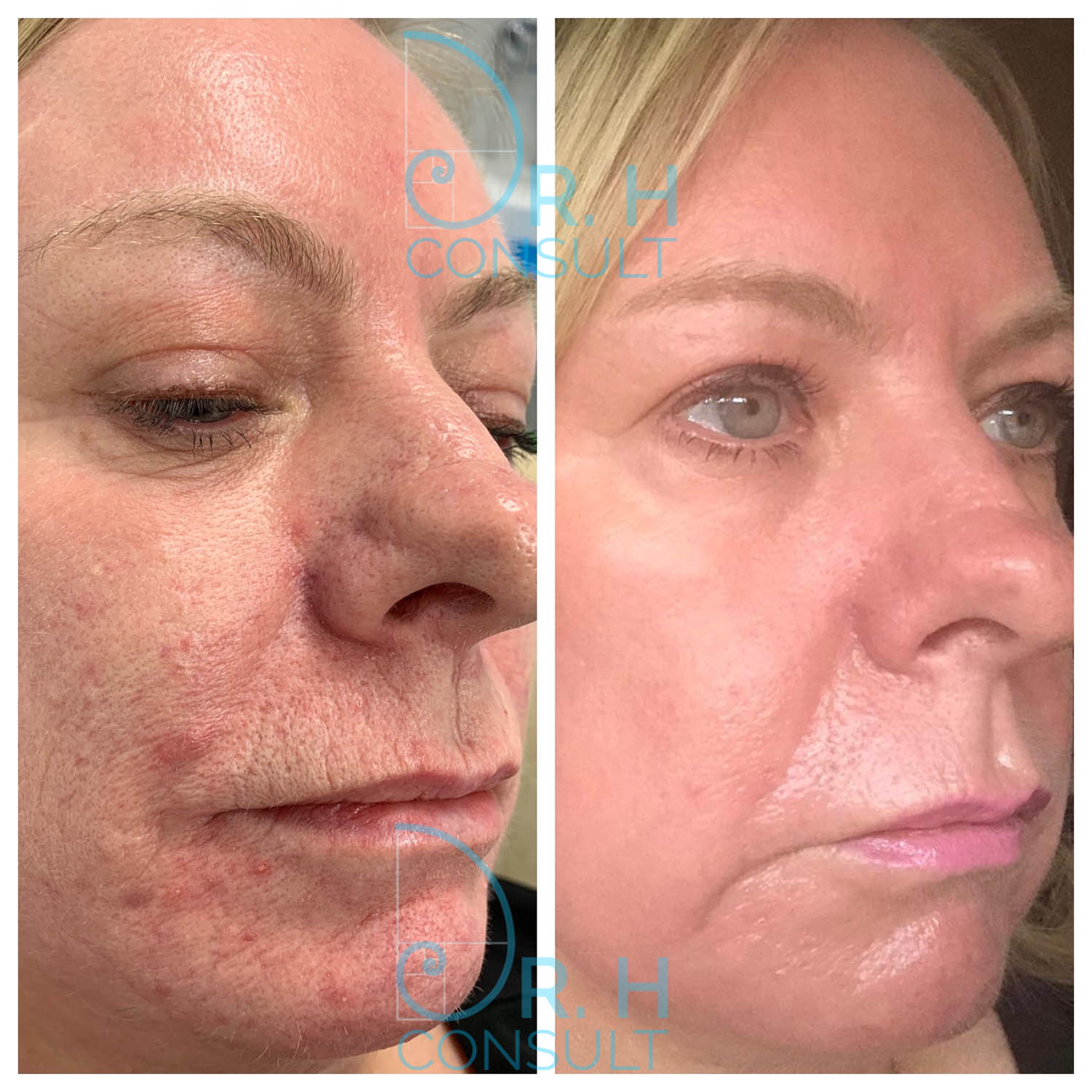The Main Principles Of Laser Skin Treatments
The Main Principles Of Laser Skin Treatments
Blog Article
More About Laser Skin Treatments
Table of ContentsLaser Skin Treatments Fundamentals ExplainedRumored Buzz on Laser Skin TreatmentsWhat Does Laser Skin Treatments Mean?Examine This Report about Laser Skin TreatmentsLaser Skin Treatments - An OverviewThe Definitive Guide to Laser Skin Treatments
Anyone that desires to make changes to his or her skin can be a candidate for laser skin resurfacing. The energy part of the laser is targeted towards the pigment, or shade, in your skin and blood vessels. This is why darker-skinned patients with even more melanin in their skin need to be much more cautious as aggressive laser treatments can inadvertently overtreat the skin, producing issues.
The warmth and the removal of the skin additionally promotes the development of new, younger looking skin cells. There is additionally a much less extensive procedure in which the laser merely warms up the skin, as opposed to in fact getting rid of the outer layer. The warm promotes the skin cells which enlarge your collagen.
The Basic Principles Of Laser Skin Treatments
After the treatment, your dealt with locations will be dealt with and wrapped to ensure a prompt healing. There are many benefits to laser skin resurfacing, however the 3 greatest benefits are: The very first benefit of skin resurfacing is that the treatment is simple and fast. It generally only lasts between thirty and forty-five minutes, depending on what you require done.

Ultimately, the factor you undertake the laser skin resurfacing procedure is to get rid of any issues with your skin so that your skin looks wonderful. Resurfacing can provide you the most efficient outcomes for this. Unlike base and skincare creams, this treatment will actually permanently modify your skin, eliminating anything unwanted to offer you the outcomes you are searching for.
6 Simple Techniques For Laser Skin Treatments
By getting rid of the external layer of skin, your creases will certainly not have actually been momentarily tightened, or filled, however they will have been totally eliminated! This indicates that your skin itself looks unbelievable, and it does not need to be masked by an endless variety of products. Laser Skin Treatments. Because the top layer of skin is removed, completely new skin will replace it
It has actually not experienced the damages of that skin, and looks younger because it is younger! This procedure essentially gives you new, more youthful skin. The warmth from the laser boosts your skin cells which consequently enlarge your collagen. Collagen is the protein which gives your body strength and structure.
This is probably the best benefit of laser skin resurfacing. Your brand-new looks are never momentary. The procedure is lasting and the remarkable results will certainly not fade over night like so lots of other skincare solutions. Unlike with facial lotions or bases, with resurfacing, the results are irreversible. You have a new layer of skin and the marks and blemishes of your previous skin will not return.
Little Known Facts About Laser Skin Treatments.
:max_bytes(150000):strip_icc()/laser-6757beb248574cd98397b59c24a46781.jpg)
Historically, a lot of laser research concentrated on ablative lasers, which remove component of the epidermis. While effective, Richey noted the downsides and said, "It's a painful treatment. You require extra downtime off of work, and due to the fact that you're removing items of the skin, it can result in sort of pigmentary issues, and you can have some scarring." According to Richey, a significant advancement in this area is the shift in the direction of non-ablative fractional lasers.
The 2 primary wavelengths used in these lasers are the 1927 nanometer and the 1550 nanometer fractional non-ablative lasers. Both lasers have revealed efficiency in avoiding skin cancers cells while improving overall skin appearance and health.
The Ultimate Guide To Laser Skin Treatments
She kept in mind, "When we do these fractional lasers, they enhance something called insulin-like development aspect [IGF] in your skin. Laser Skin Treatments. IGF is anti-carcinogenic, so we think perhaps that is just one of the devices read this post here whereby the laser prevents skin cancers cells, yet it also aids your general skin wellness. That, mixed with this home heating of your skin that develops an injury recovery feedback might imply that your skin is much better at healing, but we can not really claim that definitively right now."The effectiveness of non-ablative fractional lasers in varied skin kinds is one more essential advantage.
4 Discussing the future of laser treatments in dermatology, Richey expressed optimism about their duty in protecting against skin cancer cells. "In the most current studies, and this primarily came out of Matt Abram and Brian Hibler over at Mass Gen, they found that the individuals who got back at simply 1 of these non-ablative, fractional laser treatments were half as most likely as their counterparts to obtain one more skin cancer cells over a 6-year duration," she shared.
The Buzz on Laser Skin Treatments
"I wouldn't necessarily website link now use lasers to treat what we understand is a skin cancer cells on someone's face, however I do assume that day is coming," she said. For now, typical approaches like Mohs surgical procedure remain the gold criterion for higher-risk lumps and those located on important locations such as the face or hands."I see [non-ablative fractional lasers] as playing my review here an impressive role in terms of skin cancer avoidance.
The Specialist General's telephone call to activity to stop skin cancer cells. Skin Cancer Cells as a Major Public Wellness Issue. Nonablative 1927 nm fractional resurfacing for the treatment of facial photopigmentation.
Maximizing Results With the 1550/1927 nm Double Wavelength Non-Ablative Fractional Laser: Experienced Individual Recommendations. 6181Gupta AK, Bharadwaj M, Mehrotra R. Skin Cancer Cells Worries in People of Color: Threat Aspects and Prevention. Eastern Special-interest Group J Cancer Prev.
Report this page